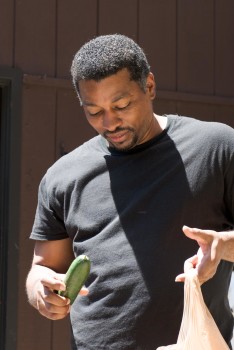More than a band-aid
By Libby Trudeau, Client Services Analyst
 Imagine that it’s a brisk autumn evening. You are sitting on the sidewalk outside of the grocery store, hoping someone walking by will give you the eighteen dollars you need to pay for the small room where you sleep at night. Some people ignore you, some smile, some are even regular “donors” and stop to say hello and slip you some cash. A few might wonder about your story—where you are from, how you got here, where you go at night. Others will wonder why you sit around asking for money instead of working; after all, you don’t seem mentally or physically handicapped. Most will assume you are addicted, or too lazy to work. What they don’t know is that you spend almost every waking hour looking for work. They don’t know how much you would rather work than ask for money. They don’t know that the door to employment is regularly closed in your face.
Imagine that it’s a brisk autumn evening. You are sitting on the sidewalk outside of the grocery store, hoping someone walking by will give you the eighteen dollars you need to pay for the small room where you sleep at night. Some people ignore you, some smile, some are even regular “donors” and stop to say hello and slip you some cash. A few might wonder about your story—where you are from, how you got here, where you go at night. Others will wonder why you sit around asking for money instead of working; after all, you don’t seem mentally or physically handicapped. Most will assume you are addicted, or too lazy to work. What they don’t know is that you spend almost every waking hour looking for work. They don’t know how much you would rather work than ask for money. They don’t know that the door to employment is regularly closed in your face.
The man in this scenario is not imagined; he exists. For the past month or so, Emmaus Outreach teams have seen “Tom” panhandling when we are out on the streets. He’s a skilled construction worker, ready and able-bodied. He’s reliable and trust-worthy, to the point that he regularly stops thefts in neighborhood businesses. One time he even tackled a culprit and restrained him until police arrived. He’s cheerful, undemanding, and always extremely grateful when people give him assistance. Tom looks for work constantly, but so far no one will hire him because he has a criminal record.
Tom told me about a benefactor who would regularly take him to the store and buy him groceries. This gentleman heard about Tom’s situation and initially wanted to hire him, but in the end he said that he just couldn’t justify it because of Tom’s criminal record. Tom was left with two days’ worth of food and the exact same situation he was in before. This has happened numerous times—Tom puts in the work, explains his record and how he’s turned his life around (his crime was nearly a decade ago), makes connections, and then is rejected. So far he’s maintained a cheerful attitude and is strictly asking for money rather than committing another crime, but I can’t imagine it’s easy.
In our work at Emmaus we encounter many people who feel compassion for men dealing with hunger and homelessness. Many of these goodhearted people are willing to donate money to shelters, or buy someone food or clothing. While these measures are necessary and helpful, they do little to actually improve a person’s situation beyond a few hours or days. The help they offer is limited. Too many, like Tom’s benefactor, are willing to give to charity but fall short of welcoming men like Tom—men who have made mistakes, but who are ready to turn over a new leaf—back into society.
It’s a risk to hire someone with a criminal record. It’s easier to spend ten minutes buying him food than to take a chance on him as an employee. I understand that. But the reality is, giving him food is just a band aid; it helps him to survive, but not to thrive. Unless we are willing to open our hearts and arms to people like Tom, they will stay stuck on the fringes of society … no matter how hard they are willing to work.
